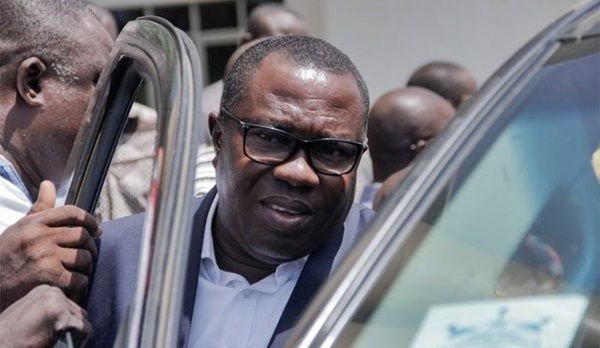
Ofosu Ampofo goes to Supreme Court over trial
The National Chairman of the National Democratic Congress (NDC), Mr Samuel Ofosu Ampofo, has gone to the Supreme Court to challenge certain aspects of his trial in which he had been accused of inciting violence against some public officials.
Mr Ampofo invoked the supervisory jurisdiction of the Supreme Court by filling an application challenging the decision of the trial High Court to admit into evidence a witness statement presented by the prosecution.
Advertisement
He is seeking an order of certiorari from the Supreme Court quashing the said decision by the High Court.
Mr Ofosu Ampofo and Kwaku Boahen, a Deputy Communications Officer of the NDC, are standing trial over a leaked tape in which they were allegedly heard inciting violence against the leadership of the Electoral Commission (EC) and the National Peace Council (NPC).
The two have pleaded not guilty to conspiracy to commit assault against a public officer, while Ofosu Ampofo has pleaded not guilty to two counts of assault against a public officer.
Extension of time
At yesterday’s hearing of the application, the Attorney-General (A-G) Department, which is an interested party in the application, prayed the court to give it more time to file her response.
The application for extension of time, moved by the Director for Public Prosecutions (DPP), Mrs Yvonne Atakora Obuobisa, was not opposed by counsel for Mr Ofosu Ampofo, Mr Tony Lithur.
A five-member panel of the court, presided over by the Chief Justice, Justice Kwasi Anin Yeboah, granted the application and gave the A-G two days to file its response.
Other members on the panel were Justices Paul Baffoe-Bonnie, Samuel K Marful-Sau, Nene Amegatcher and Mariama Owusu.
Witness statement controversy
During the first day of the trial on January 29, this year, the first prosecution witness, Benjamin Osei Ampofo Adjei, a journalist with Accra-based Adom FM, took the stand at the Accra High Court to testify.
He, however, denied knowledge of a statement that bore his signature and which was crucial to the prosecution’s case.
Even before the statement was presented to him to identify if the signature on it as his, Adjei had testified that the police had brought a statement to him to sign and that he had signed it because he was told it was part of investigations.
After the denial by the witness, the DPP sought to tender the statement into evidence but that was objected to by Mr Lithur and Dr Basit Aziz Bamba, counsel for Boahen.
In his objection, Mr Lithur argued that per the practice direction on disclosures, all parties (prosecution and defence) must agree before a witness statement could be tendered as evidence.
According to him, the defence had not agreed for the statement to be tendered because the witness had denied knowledge of it.
In response, Mrs Obuobisa refuted the argument by the defence and submitted that the rule of admissibility of a witness statement required a witness statement to be dated and signed or thumb-printed by the witness.
According to her, the statement dated May 3, 2019 had been duly signed by the witness and, therefore, it must be admitted into evidence.
In his ruling, the trial judge, Justice Samuel Asiedu, agreed with the prosecution and held that so far as the statement contained the signature of the witness, it must be adopted as evidence.
“To the extent that the witness has identified his signature on the statement, the statement is valid and acceptable,” Justice Asiedu ruled.
It is the said decision that the NDC National Chairman is challenging at the Supreme Court.
Prosecution’s facts
According to the prosecution’s facts, following the Ayawaso West Wuogon by-election debacle on January 31, 2019, Ofosu Ampofo met with some NDC communicators on February 3, 2019.
The facts explained that at the said meeting, Mr Ofosu Ampofo and Boahen set out a roadmap of criminal activities, including violence against the EC Chairperson, Mrs Jean Mensa, and the Chairman of the NPC, the Most Rev. Prof. Emmanuel Asante.
It said an audio recording of the said meeting was leaked, leading to investigations by the Criminal Investigations Department of the Ghana Police Service into the comments on the tape.
The prosecution added that on February 20, 2019, Boahen granted a radio interview in which he confirmed his participation in the meeting and also revealed that the leaked audio recording was a true reflection of what had transpired at the February 3, 2019 meeting.



